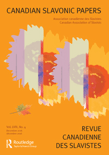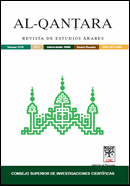
Palaeobulgarica-Starobalgaristika
metrics 2024
Illuminating the Intersections of History and Culture
Introduction
Palaeobulgarica-Starobalgaristika is a distinguished academic journal published by the Bulgarian Academy of Sciences, focusing on the rich history and cultural heritage of Bulgaria and the surrounding regions. With an ISSN of 0204-4021 and an E-ISSN of 2603-2899, this journal serves as an essential platform for researchers, historians, and scholars, providing a forum for the dissemination of innovative research and interdisciplinary studies. The journal has established its significance in the field by achieving an impressive Q3 ranking in History and boasting a Scopus rank of #702 out of 1760 in the Arts and Humanities category, placing it in the 60th percentile. Operating within the timeline of 2019 to 2024, it strives to explore various facets of Bulgarian history, cultural identity, and archaeological findings. While currently not an open-access journal, Palaeobulgarica-Starobalgaristika remains committed to enhancing the academic conversation within its field, making it an invaluable resource for those dedicated to understanding and preserving Bulgaria's historical narrative.
Metrics 2024
 0.13
0.13 0.20
0.20 0.20
0.20 3
3Metrics History
Rank 2024
Scopus
JCI (Web Of Science)
Quartile History
Similar Journals

Gripla
Fostering Insightful Dialogues in Icelandic StudiesGripla, published by the Arni Magnusson Institute for Icelandic Studies, stands as a significant academic journal in the fields of linguistics and literary studies. With an ISSN of 1018-5011, this esteemed journal has been releasing cutting-edge research since its inception in 2011. Although currently categorized as Q4 in Linguistics and Language and Q3 in Literature and Literary Theory for 2023, it has showcased robust scholarship with a Scopus rank of #327 in Literature and Literary Theory, placing it within the 70th percentile of its category. Gripla serves as a vital platform for the exploration of Icelandic studies, fostering a deeper understanding of language and literature in a rapidly evolving academic landscape. While it is not an open-access journal, its contributions are essential for researchers, professionals, and students eager to engage with new developments in the linguistics and literary discourse. Situated in the heart of Reykjavik, Gripla continues to enrich the scholarly community by providing insights that bridge traditional knowledge with contemporary relevance.

BULGARIAN HISTORICAL REVIEW-REVUE BULGARE D HISTOIRE
Connecting Scholars: A Platform for Bulgaria's Rich Historical TapestryBULGARIAN HISTORICAL REVIEW - REVUE BULGARE D HISTOIRE is a distinguished journal published by the PUBL HOUSE BULGARIAN ACAD SCI, providing a critical platform for the exploration and analysis of historical narratives pertinent to Bulgaria and its broader regional context. With an ISSN of 0204-8906, this journal has been a reservoir of scholarly research since its inaugural issue, recently covering years from 2001 to 2007 and again from 2009 to 2023. Despite its classification in the Q4 category of History, it uniquely contributes to understanding and preserving historical insights, as reflected in its modest but growing impact in the academic community, where it currently ranks #1405 out of 1760 in Scopus Analytics. The journal aims to engage researchers, professionals, and students by presenting a diverse array of articles, encouraging scholarly discourse that sheds light on historical complexities and advancements. While it currently does not adopt an open-access model, it remains a crucial resource for those engaged in historical studies, particularly in Eastern European contexts.

Canadian Slavonic Papers
Advancing Knowledge in Slavic and Eastern European StudiesCanadian Slavonic Papers, published by Routledge Journals, Taylor & Francis Ltd, is an esteemed peer-reviewed journal dedicated to the exploration of the Slavic, Eastern European, and Russian domains, fostering scholarly dialogue across multiple disciplines. With a robust focus on Cultural Studies, History, Linguistics, and Literature, this journal has firmly established its presence in the academic community, as evidenced by its Q1 ranking across various categories in 2023. Since its inception, Canadian Slavonic Papers has been a vital platform for researchers, professionals, and students alike, providing an invaluable repository of knowledge and insights from 1977 to the present. While not an open-access journal, it remains accessible through institutional subscriptions, ensuring a wide dissemination of scholarship. Located in the United Kingdom, the journal continues to contribute significantly to the understanding of Slavic studies within a global context, making it essential reading for anyone invested in this dynamic field.

WELT DER SLAVEN-HALBJAHRESSCHRIFT FUR SLAVISTIK
Bridging Cultures Through Slavic LiteratureWelt der Slaven-Halbjahresschrift fur Slavistik is a distinguished academic journal dedicated to the field of Slavic studies, published by Harrassowitz Verlag. With a focus on the rich tapestry of Slavic languages, literature, and cultural theory, this journal provides a vital platform for scholars, researchers, and students interested in the complexities of Slavic linguistics and literary expression. It operates on a semi-annual basis, encompassing converged years from 2002 to 2015 and continuing from 2017 to 2024, ensuring a continuous dialogue in an evolving academic landscape. Despite its Q4 and Q3 rankings in various categories—such as Linguistics and Language, Literature and Literary Theory, and Visual Arts and Performing Arts—its impact is noteworthy, with Scopus ranks that place it within the upper percentiles of arts and humanities fields. While currently not an open access publication, it remains an essential resource for those engaged in the interdisciplinary exploration of Slavic cultures and their global significance. The journal emphasizes innovative research and critical analysis, making it a key contribution to the ongoing discourse in Slavistics.

Studi Slavistici
Advancing Interdisciplinary Dialogue in Slavic StudiesStudi Slavistici is an esteemed academic journal published by FIRENZE UNIV PRESS, focusing on the rich and diverse fields of Cultural Studies, Linguistics and Language, and Literature and Literary Theory. Since its initiation in 2004, it operates under an Open Access model, providing unrestricted access to its contents and fostering a wider dissemination of research. Based in Italy, this journal serves as a vital platform for scholars and researchers engaged in Slavic studies and beyond, encouraging interdisciplinary dialogue and innovative approaches. With its current Quartile rankings in the Q4 category across various domains, it plays a significant role in shaping dialogues within the academic community while offering insights into contemporary and historical perspectives. By maintaining an inclusive vision and engaging with critical issues, Studi Slavistici remains dedicated to advancing knowledge and scholarship in these intricate fields.

INDO-IRANIAN JOURNAL
Cultivating a Legacy of Scholarly Excellence Since 1957INDO-IRANIAN JOURNAL, published by BRILL, serves as a premier platform for scholarly research within the fields of linguistics, philosophy, and political science. Established in 1957 and continuing through 2024, this journal is unwavering in its commitment to advancing the understanding of Indo-Iranian studies by incorporating a rich diversity of perspectives and methodologies. With an ISSN of 0019-7246 and an E-ISSN of 1572-8536, it is indexed in Scopus and has garnered respectable rankings, including a Q3 classification in both Linguistics and Language and Philosophy for 2023, indicating its significance in the academic community. Although it does not offer open access, the journal prioritizes the dissemination of high-quality research, contributing to the ongoing discourse in these vital areas of study. By fostering a rigorous academic exchange, the INDO-IRANIAN JOURNAL is essential for researchers, professionals, and students dedicated to exploring the intricacies of Indo-Iranian interactions and their broader implications.

Lingua Montenegrina
Connecting Scholars to the Heart of Montenegrin LiteratureLingua Montenegrina is a distinguished academic journal dedicated to exploring and advancing the fields of Montenegrin language and literature. Published by the Institute of Montenegrin Language and Literature, this journal serves as a vital platform for researchers, educators, and students interested in the nuances and development of Montenegrin linguistics, literature, and cultural studies. With an ISSN of 1800-7007, it contributes significantly to the scholarly discourse in the region and beyond. While the journal operates under a traditional subscription model, it ensures that its readership has access to high-quality research that is pivotal for understanding Montenegrin identity and cultural expressions. The commitment of Lingua Montenegrina to rigorous academic standards and its focus on regional studies positions it as an essential resource for those looking to deepen their understanding of the Montenegrin language and its literary heritage.

Vestnik Slavianskikh Kultur-Bulletin of Slavic Cultures-Scientific and Informational Journal
Advancing Knowledge in Slavic StudiesVestnik Slavianskikh Kultur-Bulletin of Slavic Cultures is a distinguished scientific and informational journal published by the State Academy of Slavic Culture. This journal, with ISSN 2073-9567, plays a pivotal role in the field of Slavic studies, providing a platform for the dissemination of cutting-edge research, cultural discourse, and scholarly analysis pertaining to Slavic cultures and civilizations. The journal aims to foster a deeper understanding of Slavic heritage, literature, and the societal dynamics shaping these cultures today. Although currently lacking an open access model, it remains an important resource for researchers, professionals, and students interested in the rich tapestry of Slavic traditions and contemporary cultural phenomena. With its thoughtful curation of articles, Vestnik Slavianskikh Kultur is poised to contribute significantly to ongoing scholarly conversations within the humanities.

BULLETIN OF THE SCHOOL OF ORIENTAL AND AFRICAN STUDIES-UNIVERSITY OF LONDON
Connecting Cultures Through Rigorous ScholarshipBULLETIN OF THE SCHOOL OF ORIENTAL AND AFRICAN STUDIES-UNIVERSITY OF LONDON, published by Cambridge University Press, stands as a pivotal journal in the fields of Cultural Studies and History, with an impressive track record dating back to its inception in 1917. With a current impact factor that places it in the Q2 quartile for both categories, this journal gives voice to a rich tapestry of research dedicated to the complexities of Eastern and African societies. Researchers exploring the nuances of cultural interactions, historical developments, and socio-political dynamics will find this publication invaluable, as it offers peer-reviewed articles that contribute significantly to the academia surrounding these diverse fields. Although the journal is not open access, it continues to attract a dedicated readership due to its rigorous scholarly standards and reputation for quality. The BULLETIN also boasts a noteworthy Scopus ranking, reflecting its influence and reach within the global academic community. Located in the United Kingdom, the journal serves as a hub for international scholarly exchange, encouraging contributions that delve into the rich heritage and contemporary issues of Oriental and African studies.

AL-QANTARA
Connecting Past and Present Through Scholarly Excellence.AL-QANTARA, published by the Consejo Superior Investigaciones Cientificas (CSIC), is a prestigious academic journal that has been at the forefront of interdisciplinary research in the fields of Cultural Studies, History, and Literature and Literary Theory since its inception in 1984. Renowned for its commitment to open access since 1996, the journal promotes a comprehensive understanding of the interconnectedness of cultural narratives and historical discourse, making it an invaluable resource for researchers and students alike. With impressive rankings in Scopus—including a top placement in the Q1 category for Literature and Literary Theory and Q2 in both Cultural Studies and History—AL-QANTARA effectively bridges theoretical insights with empirical research, contributing to robust academic dialogue and innovation. Operating out of Madrid, Spain, it stands as a pillar of scholarly excellence, offering a platform for diverse voices in the humanities to share their findings and engage with critical contemporary issues.